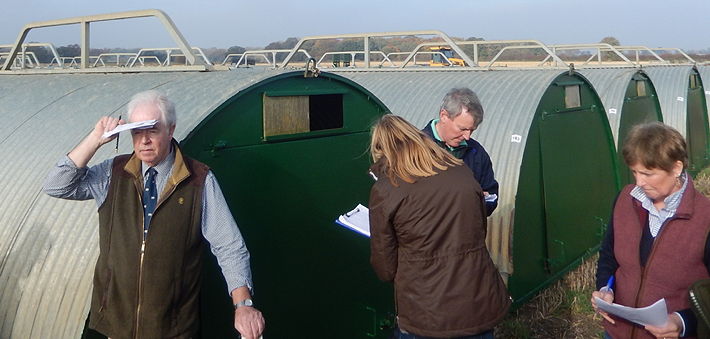Pig meat prices are continuing their meteoric rise throughout the EU with the latest German producer price rising by another 8 Cents to stand at €2.28, compared with a mere 1.20 EUR twelve months ago.
Although the SPP is also travelling north, this is at a much more sedate pace by comparison with the situation in the EU. The latest SPP went up by 1.45p to stand at a record 206.39p.
However, comparisons between the SPP and EU prices do not allow for lower EU processing costs as well as below the line benefits and transports costs which are paid by the buyer not the seller.
UK spot bacon pigs remain few and far between and any looking for homes were quickly snapped up with prices well ahead of the SPP and reports that buyers would be needing to think in terms of 215p/kg or more if they are going to have a chance of replenishing empty chill rooms.
As far as UK weekly contribution prices are concerned, although one of the major players in this sector held their price this week at 204p, weekly contribution prices are still in the main unavailable and in school report terms, ‘could do better’.
Cull Sows
Cull sow sellers also had a spring in their step with the news that the latest cull prices had risen by another 7p/kg with most now between 115p and 119p/kg with plenty of abattoir space as exporters are still looking for sows to fill orders.
A significant rise in the value of the Euro, which traded at 89.2p on Friday compared with 88.40p a week earlier, has also worked to producers’ advantage with the value of pig meat exports going up and the same applying to those dreaded imports from the EU and beyond.
Weaners
Weaner supplies continue to reflect a growing shortage of pig availability in the weeks and months ahead which is why buyers have been keen to get on this particular bandwagon before it gets even more expensive.
Red Tractor 7kg weaners have been traded in the £50/head region or more and RSPCA Assured 7kg piglets on contract have in many cases been sold in the £55/head mark.
At least this should help to reduce the debt mountain faced by many producers after around two years of losing money, but they must make haste while the sun shines because there is a long way to go before this can be recouped, as feed costs are tending to rise and need watching.
Feed Market Trends
Unfortunately, feed costs are continuing to harden due to the ongoing warfare in Ukraine as well as more expensive proteins in the southern hemisphere. The UK spot feed wheat weekly average has gone up over the last seven days from £225/t to £232/t ex farm and remains volatile.
Futures prices are also continuing to reflect this firm trend with March feed wheat quoted at £240/t and September at £238/t. Feed barley prices have also risen with March at £220/t and September at £221/t.
Proteins remain eye -wateringly expensive with March Hipro soya at £573/t and June – October at £511/t. Rapemeal continues to be traded at high prices with March – April at £363/t.
And finally…
Despite the euphoria arising from soaring pig meat prices disease remains a major worry following recent press reports indicating that illegal pork imports from Romania have recently been uncovered during UK
customs inspections, especially bearing in mind that a major 39,000 head cull of pigs took place in Romania only three months ago and more of the same could ruin the UK industry.
Although the UK government has more on its plate than worrying about pig farmers, this is a very real threat and much more attention needs to be given to custom inspections of all imported pig meat, especially if this has come from former eastern bloc countries as well as Germany and Italy, which is why biosecurity needs to receive the highest priority.
However, at the same time it is good to hear that US researchers are reporting a ‘major breakthrough’ in combatting African Swine Fever is on the cards.
These are early days but no reason to relax on the biosecurity front in the meantime…..perhaps the US cavalry will come to the rescue?




